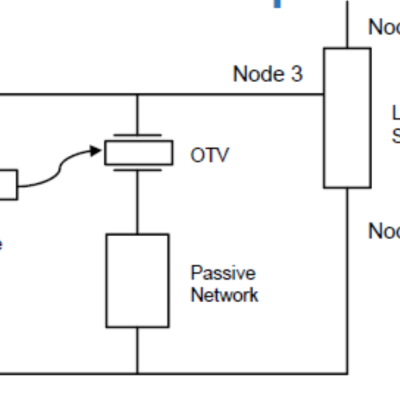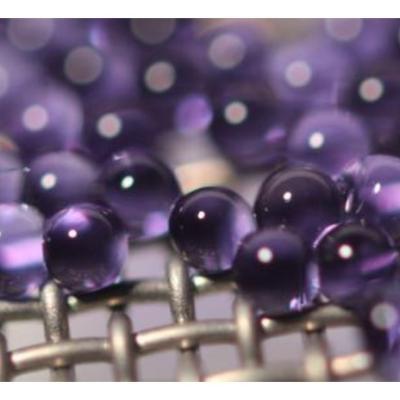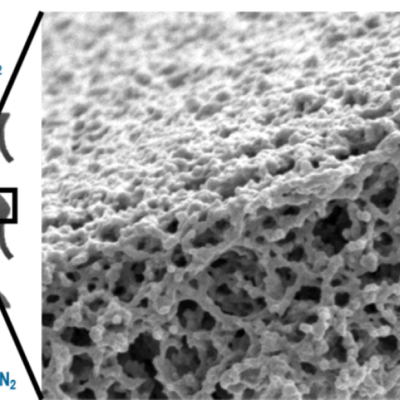LLNL researchers have developed a self-supporting structural material that promises more efficient carbon capture specifically from air, but generally from all CO2 containing gas sources. The material is produced with a liquid high-amine-content precursor polymer that is functionalized by adding on polymerizable end groups.
Keywords
- Show all (41)
- Carbon Utilization (7)
- Electric Grid (7)
- Additive Manufacturing (4)
- Materials for Energy Products (4)
- 3D Printing (3)
- Inertial Fusion Energy (IFE) (2)
- Power Electronics (2)
- Synthesis and Processing (2)
- Geologic Storage (1)
- Inertial Confinement Fusion (ICF) (1)
- Membranes (1)
- Microfabrication (1)
- Semiconductors (1)
- Simulation (1)
- (-) Direct Air Capture (3)
- (-) Photoconductive Semiconductor Switches (PCSS) (1)

This invention solves a limitation in the current practice of adding hydroxyl functional groups to the aminopolymer through the use of an alternative synthetic approach. The novelty of our approach is to produce new structurally modified relatives of common aminopolymers (PEI and PPI) as well as new functionalized materials in which the hydroxyl groups are tethered to a carbon in the backbone…

A thyristor will stay conducting until the current through the device is zero (“current zero”) or perhaps slightly negative. LLNL’s approach is to use the opticondistor (“OTV”) to force this current zero in order to force the device into an “off” state. By combining a light-activated thyristor with an OTV, a noise-immune, high efficiency, high-power switching device can be…

This invention describes a multiple nozzle microfluidic unit that allows simultaneous generation streams of multiple layered coaxial liquid jets. Liquids are pumped into the device at a combined flow rate from 100 mL/hr to 10 L/hr. Droplets are created with diameters in the range of 1 µm to 5 mm and can be created with 1-2 shell layers encapsulating fluid. Droplets created from the system can…


